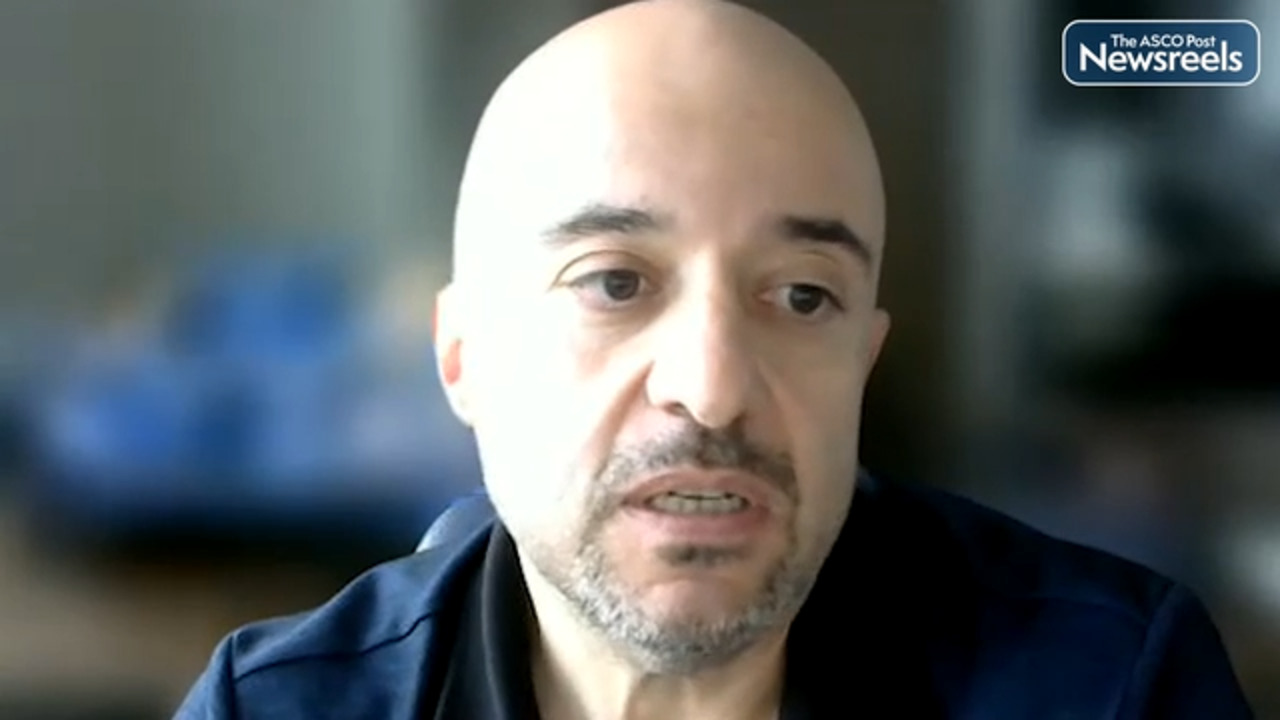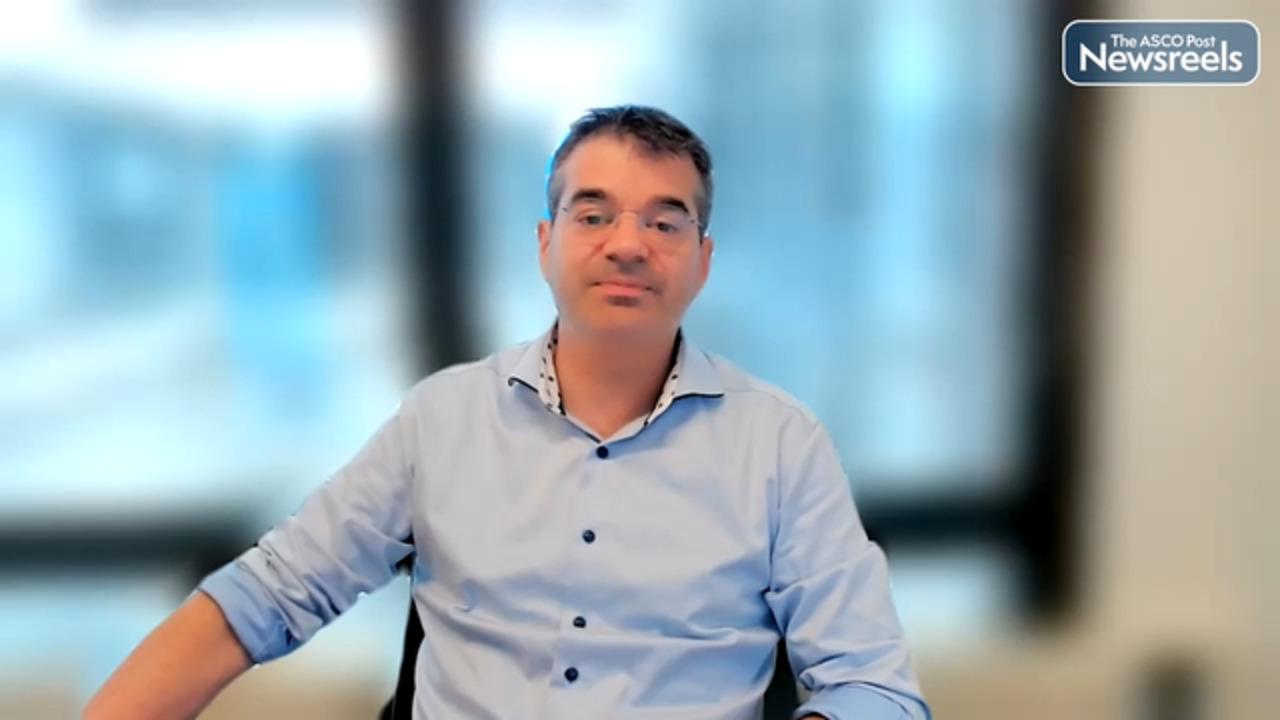Related Videos
Rami S. Komrokji, MD, on Myelodysplastic Neoplasms: Classifying Risks Among Subsets of Disease
Rami S. Komrokji, MD, of Moffitt Cancer Center, discusses an assessment of new classifications for myeloid neoplasms and the ongoing efforts to harmonize these classifications, so researchers can better understand risk, outcomes, and survival among patients with genetically distinct types of the disease.
Matthew J. Frank, MD, PhD, on Large B-Cell Lymphoma: New Data on CD22 CAR T-Cell Therapy
Matthew J. Frank, MD, PhD, of Stanford University School of Medicine, discusses new findings showing that CD22 chimeric antigen receptor (CAR) T-cell therapy is an effective and safe salvage therapy for patients with CAR19-refractory large B-cell lymphoma. A multicenter phase II clinical trial is planned for 2023 (Abstract S230).
Nicholas J. Short, MD on Acute Lymphoblastic Leukemia: Phase II Findings on Mini-HCVD, Inotuzumab, and Blinatumomab
Nicholas J. Short, MD, of The University of Texas MD Anderson Cancer Center, discusses new data on improved outcomes in patients with relapsed or refractory acute lymphoblastic leukemia who received the combination of mini-HCVD and reduced-dose inotuzumab and then blinatumomab in sequence. In mini-HCVD, cyclophosphamide and dexamethasone are administered with a 50% dose reduction, methotrexate with a 75% dose reduction, cytarabine with an 83% dose reduction, and anthracycline is omitted entirely. (Abstract S119)
Nikhil Munshi, MD, on Multiple Myeloma: Data From the CARTITUDE-1 Study of Ciltacabtagene Autoleucel
Nikhil Munshi, MD, of Dana-Farber Cancer Institute, discusses the final safety and efficacy results from the phase Ib/II CARTITUDE-1 trial of ciltacabtagene autoleucel. This CAR T-cell therapy targets B-cell maturation antigen in patients with relapsed or refractory multiple myeloma. Longer median progression-free survival was observed after a single infusion of this agent than any previously reported therapy in heavily pretreated patients (Abstract S202).
Arnon Kater, MD, PhD on CLL: Recent Data on Venetoclax, Ibrutinib, and Undetectable MRD
Arnon Kater, MD, PhD, of the University of Amsterdam Medical Centers, discusses results from the phase II VISION/HO141 trial of venetoclax plus ibrutinib in patients with relapsed or refractory chronic lymphocytic leukemia (CLL). For patients with undetectable measurable residual disease (MRD) after 15 cycles of treatment, treatment cessation with MRD-guided reinitiation was found to be a feasible approach.



